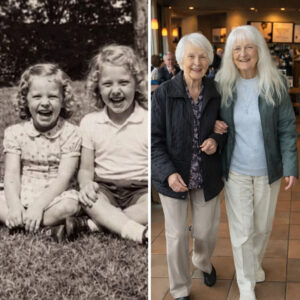The afternoon we buried my mother, the house felt like it had forgotten how to breathe. Sunlight fell in quiet stripes across her favorite chair, and the air still smelled faintly of lavender and soap — the scent that had always meant home. My two brothers and I spent the day sorting through her belongings: the worn recipe cards with coffee stains, the photo albums she’d labeled in careful cursive, the chipped teacups she refused to throw away. On top of her tall wooden wardrobe, we found three identical blankets, neatly folded and soft with age. My brothers laughed and said, “Just old rags.” But something about the way they were arranged — tidy, deliberate — made me pause. When they turned away, I quietly tucked them under my arm and took them home.
That night, I decided to wash them. As I shook out the first blanket, something small hit the floor with a dull sound — an envelope wrapped in cloth, its paper brittle and yellowed. Inside were a few coins and a note written in my mother’s familiar handwriting: “For my first son — you’ve always worried about money. Remember, love is the truest wealth.” My heart caught in my throat. I sat there for a long time, staring at the letter, her voice echoing in my mind. My mother had never been rich, but somehow she always made enough — for birthdays, for comfort, for us. I unfolded the second blanket with trembling hands. Out slipped a small silver cross tied with red thread, and another note: “For my second son — faith will guide you when reason cannot.”
Tears blurred the ink as I reached for the final blanket, the one my daughter had touched earlier and called “pretty.” It felt heavier than the rest. When I loosened its folds, a tiny wooden heart carved by hand fell into my lap. The edges were smooth from years of being handled. On one side, in her careful writing, were the words: “For my youngest — never stop being kind.” I pressed the heart to my chest, overwhelmed. My brothers had dismissed the blankets as junk, but they were so much more — they were love letters stitched in fabric, reminders of who we were and who she hoped we’d continue to be.
Later that evening, my daughter curled against me, clutching the wooden heart in her small hands. I looked around the quiet house, feeling my mother’s presence everywhere — in the warmth of the blankets, in the hush of the night, in the lessons she’d left behind. It struck me that love doesn’t always come wrapped in grand gestures or expensive gifts. Sometimes, it hides quietly in the simplest things — in a threadbare blanket, a handwritten note, or a carved piece of wood left behind for someone to find when they need it most. That night, I finally understood: my mother hadn’t just left us memories. She had left us a way to keep her love alive — one fold, one lesson, one blanket at a time.


